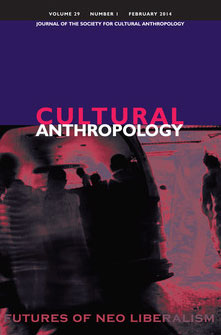 The February issue of Cultural Anthropology, a publication of the American Anthropological Association’s (AAA) Society for Cultural Anthropology (SCA) section, marked AAA’s foray into open access (OA) publishing. An editorial in this issue provides some insight into the move.
The February issue of Cultural Anthropology, a publication of the American Anthropological Association’s (AAA) Society for Cultural Anthropology (SCA) section, marked AAA’s foray into open access (OA) publishing. An editorial in this issue provides some insight into the move.
This move is the result of a 2012 decision by AAA to have one section experiment with moving to an (OA) platform, while the remainder of its 20+ section publications remain continue to use a subscription-based model. The other AAA journals (and back issues of Cultural Anthropology) will remain available through AnthroSource, a database hosted by publisher Wiley-Blackwell.
Why does this matter?
OA is important for a variety of reasons. While the Collins Library already maintains an ongoing subscription to AnthroSource that allows Puget Sound student, staff, and faculty members full-text access to AAA journals that access comes at a cost. Subscriptions to AnthroSource and other databases and journals are expensive, and price increases continue to outpace inflation, as discussed in Library Journal’s annual Periodicals Price Survey. These increasing costs lead to decreases in the number of journal subscriptions, allocations towards book purchasing, and other spending at libraries across the country.
Additionally individuals that aren’t affiliated with research institutions, or those affiliated with institutions that lack the means to pay for expensive subscriptions are effectively left out of important scholarly discourses. This issue can disproportionately affect academics in developing nations that lack the funding to pay for expensive subscriptions. What is Open Access?, a video created by PhD Comics does an excellent job of illustrating (pun intended) the critical role that OA can play by increasing the availability of scholarly research.
It will be very interesting to see whether Cultural Anthropology’s experiment with OA is successful and sustainable, and whether other sections of AAA follow SCA’s lead.
By Ben Tucker
